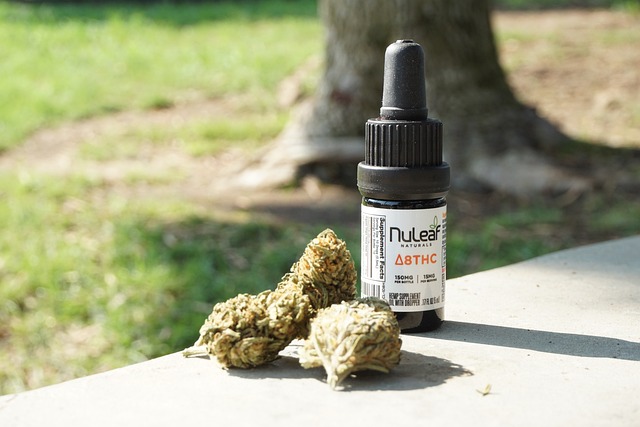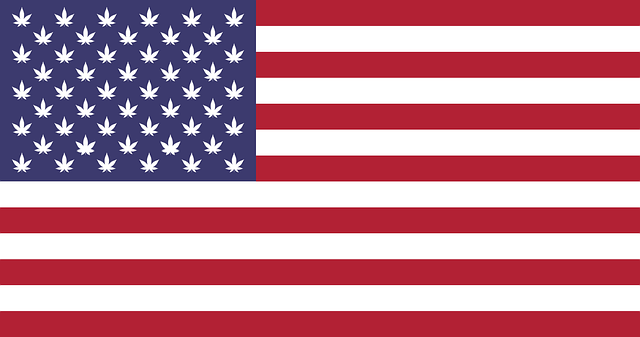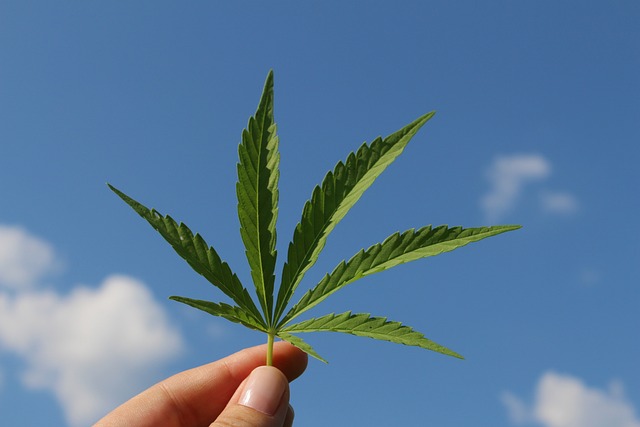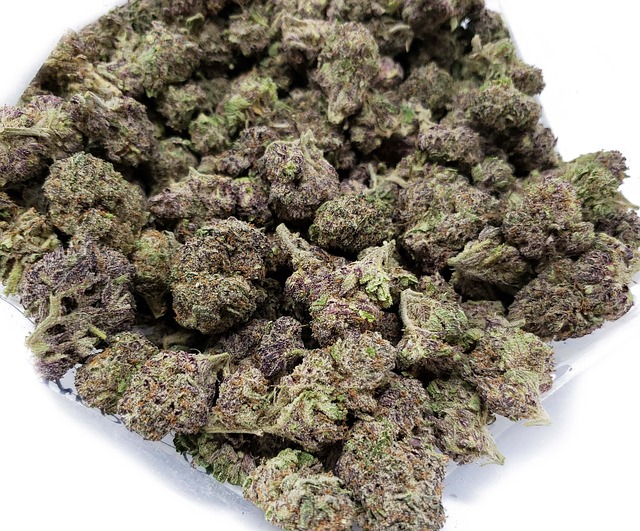
THCA flower, the non-psychoactive precursor to THC found in cannabis plants, is gaining recognition for its potential health benefits. Unlike THC, THCA does not induce a high but has been associated with anti-inflammatory, analgesic, neuroprotective, and antibacterial properties, which may alleviate chronic pain, inflammation, and potentially help manage neurodegenerative conditions without psychoactive effects. The therapeutic potential of THCA is currently under scientific scrutiny, with ongoing research focusing on its interactions with the endocannabinoid system and its synergistic effects when used alongside other cannabinoids and terpenes. THCA flower effects and benefits are being explored for their role in wellness routines and as a natural alternative within therapeutic contexts. The stability of THCA allows it to be preserved until heat converts it into THC, offering users control over when they experience psychoactive effects. As research progresses, the understanding of THCA's mechanisms and full potential continues to expand, underscoring its significance as a subject of interest in cannabis medicine.
Discover the potent potential of THCA flowers, a natural wonder at the forefront of wellness and holistic health. This article delves into the intricacies of THCA flower effects and benefits, unraveling the science behind its therapeutic properties. From cultivation to consumption, learn how to harness these healing attributes responsibly. Whether for medicinal or recreational purposes, explore the practicalities and profound impact of THCA flowers through our comprehensive guide, ensuring an informed approach to their use in your daily life.
- Unveiling THCA Flower: A Natural Phenomenon
- The Science Behind THCA Flower Effects
- Harnessing the Healing Properties of THCA Flowers
- Cultivating and Consuming THCA Flowers: A Practical Guide
- Understanding the Therapeutic and Recreational Benefits of THCA Flowers
Unveiling THCA Flower: A Natural Phenomenon

Cannabinoids, a class of compounds found in cannabis plants, have garnered significant attention for their potential effects and benefits. Among these, Tetrahydrocannabinolic Acid (THCA) stands out as a non-psychoactive precursor to the well-known THC. THCA flower, rich in THCA, is celebrated for its therapeutic properties without the intoxicating effects associated with THC. Emerging research suggests that THCA may possess anti-inflammatory and pain-relieving qualities, offering a promising alternative for those seeking relief from various conditions. The natural phenomenon of THCA flower is a testament to the plant’s complex pharmacology, where each compound contributes to the overall effects and benefits. Users report a wide range of experiences, from alleviating chronic pain to supporting overall well-being, highlighting the need for further scientific exploration into its potential therapeutic applications. As interest in cannabinoids continues to expand, understanding the nuances of THCA flower effects and benefits becomes increasingly important for those exploring natural remedies or alternative treatments.
The Science Behind THCA Flower Effects

Tetrahydrocannabinolic acid (THCA) is the non-psychoactive precursor to THC, the primary psychoactive component of cannabis. THCA flower effects are of considerable interest to researchers and consumers alike due to its potential therapeutic properties. Initial scientific studies suggest that THCA may offer a range of health benefits without the psychotropic effects associated with THC. These potential benefits include anti-inflammatory, analgesic, and antiemetic properties, which could make it beneficial for managing pain, reducing nausea, and addressing inflammation in various conditions. Preclinical research indicates that THCA interacts with the body’s endocannabinoid system through its affinity for both CB1 and CB2 receptors, albeit less potently than certain other cannabinoids. This interaction is thought to influence various physiological processes, including immune response, neuroprotection, and homeostasis maintenance. The effects of THCA are also being studied for their potential in neuroprotective and anti-anxiety contexts, offering a promising avenue for further research into cannabinoid therapy. As the scientific community continues to explore the mechanisms behind THCA’s actions, the collective understanding of its flower effects and benefits is expected to expand, potentially paving the way for new therapeutic applications.
Furthermore, the effects of THCA are not limited to its pharmacological interactions; they also extend to its chemical stability. When cannabis flower containing high levels of THCA is properly stored in a cool, dark place, it preserves the acidic form of the cannabinoid until it undergoes decarboxylation, typically when heated, converting it into THC. This process allows users and patients to harness the benefits of THCA prior to consumption, offering a unique approach to cannabis therapy where the effects can be precisely controlled based on the desired outcome. The presence of THCA in high concentrations in certain strains has led to an increased focus on its direct effects and how it might complement or synergize with other cannabinoids and terpenes found in the cannabis plant, contributing to what is known as the “entourage effect.” As such, the study of THCA flower effects and benefits continues to evolve, with ongoing research aiming to elucidate its role within the broader context of cannabis medicine.
Harnessing the Healing Properties of THCA Flowers

THCA, or Tetrahydrocannabinolic Acid, is a non-psychoactive compound found in hemp and cannabis plants that has garnered attention for its potential healing properties. When heated, THCA converts to THC, the well-known psychoactive component of cannabis. However, THCA itself has been the subject of numerous studies exploring its therapeutic effects and benefits. Consumers interested in harnessing these benefits can do so by utilizing THCA flowers, which are rich in this raw cannabinoid.
THCA flower effects have been observed to include anti-inflammatory, analgesic, and neuroprotective properties. Preliminary research suggests that THCA may be effective in managing pain without the psychoactive ‘high’ associated with THC. It is also believed to possess antibacterial qualities and could potentially aid in the management of neurodegenerative diseases due to its neuroprotective effects. Users often report that THCA flowers help alleviate symptoms related to inflammation, such as arthritis, and provide relief from chronic pain conditions. The benefits of THCA are multifaceted, offering a promising alternative for individuals seeking the therapeutic qualities of cannabinoids without psychoactive influence. As the scientific community continues to investigate the full spectrum of THCA’s potential, its inclusion in wellness routines is becoming increasingly popular among those looking to explore the healing properties of cannabis in a new way.
Cultivating and Consuming THCA Flowers: A Practical Guide

Cultivating THCA flowers requires careful attention to detail, as these buds contain the non-psychoactive acid form of THC, known as THCa, which has been studied for its potential health benefits. To successfully grow THCA flowers, gardeners must optimize growing conditions such as soil quality, pH levels, and adequate lighting. It’s crucial to maintain a consistent temperature and humidity to ensure the plants flourish without falling prey to mold or pests. Once harvested, proper drying and curing techniques are essential to preserve the THCa content, which can then be activated through decarboxylation if a psychoactive effect is desired.
Consuming THCA flowers offers a variety of effects and benefits. THCa is celebrated for its potential anti-inflammatory and neuroprotective properties, making it a subject of interest in various therapeutic applications. Users often report a clear-headed high when consuming THCa, as opposed to the intoxicating effects associated with THC. The flowers can be smoked, vaporized, or infused into edibles, depending on individual preference and desired effects. It’s important for consumers to source quality THCA flowers from reputable suppliers and to understand the legal status of these products in their region before consumption. With a growing body of research on its benefits, THCa flower consumption is becoming increasingly popular among those looking for alternatives to traditional medical or recreational cannabis.
Understanding the Therapeutic and Recreational Benefits of THCA Flowers

THC acid, known as THCA, is a naturally occurring compound found in the cannabis plant that has been gaining attention for its potential therapeutic and recreational benefits. Unlike its decarboxylated form THC, THCA exists naturally in raw cannabis flowers and possesses distinct properties. Users interested in exploring the effects of THCA flowers often report a clear-headed high that can enhance focus and creativity, making it a preferred choice for daytime use or activities that require mental engagement. The therapeutic benefits of THCA are equally noteworthy, with early research suggesting anti-inflammatory, neuroprotective, and analgesic effects, which could be beneficial for managing conditions like chronic pain, inflammation, and certain neurological disorders.
Incorporating THCA flower effects into one’s wellness regimen can offer a unique experience distinct from traditional cannabis consumption. These flowers are rich in cannabinoids without the psychoactive effects that come with high-THC strains. As such, they provide an alternative for those seeking the medical benefits of cannabis without the ‘high’ associated with its more processed forms. Additionally, THCA flowers have been used for their recreational effects, which can include a sense of relaxation and euphoria, along with reduced anxiety and stress. The subtlety of these effects makes THCA an intriguing option for both medicinal and casual use, offering a broad spectrum of cannabinoids and terpenes that work synergistically to promote well-being. Users are encouraged to explore the effects of THCA flowers in various strains to find the one best suited to their individual needs and preferences.
THCA flower tips represent a fascinating intersection of botanical science and potential therapeutic applications. This article has delved into the multifaceted nature of THCA flowers, from their discovery as a natural phenomenon to the scientific underpinnings of their effects and benefits. We’ve explored how these plants can be cultivated and consumed responsibly, offering insights into maximizing their healing properties. It’s clear that THCA flower effects and benefits are significant, with implications for both recreational enjoyment and therapeutic use. As research continues to unfold, the potential of THCA flowers to offer a range of wellness benefits becomes increasingly apparent. For those interested in exploring this area further, it is important to approach THCA flowers with both curiosity and caution, ensuring adherence to local laws and responsible consumption practices. With the right understanding and application, THCA flowers can be a valuable addition to one’s wellness regimen or recreational activities.


